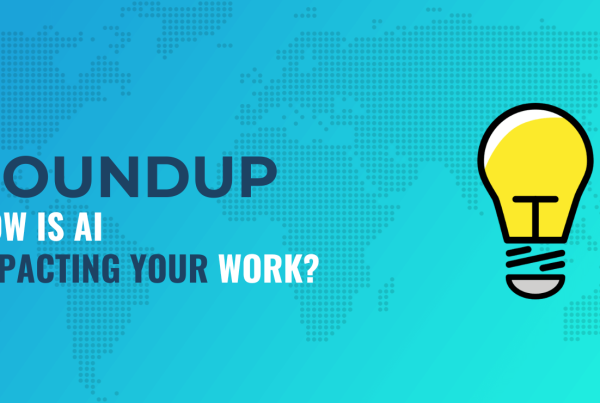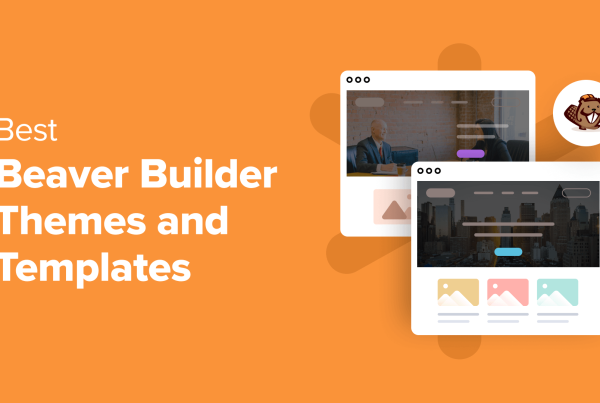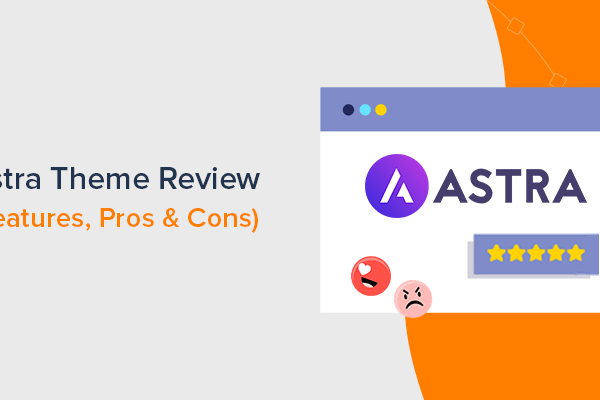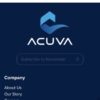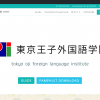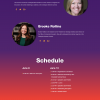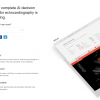Welcome to Press This, the WordPress community podcast from WMR. Here host David Vogelpohl sits down with guests from around the community to talk about the biggest issues facing WordPress developers. The following is a transcription of the original recording.
Welcome to press this the WordPress community podcast featuring exclusive content and interviews with leaders in the WordPress community covering everything from development to integrating your digital marketing strategy with WordPress. Join host David Vogelpohl of WP Engine and special guests from across the community as they keep you up to speed on the latest advancements in WordPress. Let’s get started.
David Vogelpohl: Hello everyone and welcome to press this the WordPress community podcast on WMR. This is your host David Vogelpohl. I support the WordPress community through my role at WP Engine. And I love to bring the best of the community to you here every week on Press This as a reminder, you can follow me on Twitter @wpdavidv. And of course you can subscribe to Press This on iTunes, iHeart Radio, Spotify or download the latest episodes at WMR.fm. In today’s episode we’re going to be covering a really important topic. We’re going to talk about really authentic ways to increase speaker diversity in your webinars and events. So if you’re a company that likes to put on webinars or events or a company that sends speakers or thought leaders to webinars and events, how can you increase the diversity of your speaker roster and joining us for that conversation to somewhat uniquely skilled at this I’d like to welcome to the show Jill Bender. Jill, welcome to Press This.
Jill Binder: Hi, thanks very much. Thank you for having me. And by the way it’s Binder.
DV: Binder, okay my bad, I’ve been saying you know I’ve only ever seen it written, Jill, so I have to apologize. Am I the first person to make this miskate
JB: No.
DV: Yes, I can imagine. It reminds me of a Simpsons episode where Marge was talking about seeing Gone with the Wind because she had only seen it written. Thanks, Jill for correcting me. You know, for those listening, Jill’s really quite knowledgeable in this as she runs a company essentially called Diverse In Tech. And what they do is focus a lot on, you know, building up those diverse speaker rosters. So she’s going to share today is really her thoughts on how to build a powerful and diverse set of speakers and I think some of the ways you go about that Jill are really interesting, so I’m going to save some of the good stuff for later but I wonder if you kick us off by telling us your WordPress origin story. When was the first time used WordPress.
JB: So the first time I used WordPress was I had done a year long program at school in British Columbia, British Columbia called BCIT. And it was a web development and media program and for my practicum I barely knew anything about WordPress and I got somebody who not only wanted WordPress help but wanted BuddyPress help. So I just dove in the deep end and learned a lot right away. And that is how I got started with WordPress. And then he loved my work so much and wanted to thank me so he sent me to our WordCamp in Vancouver, which happened to be a Developer Edition that year and like many other people were camp is where it really kicked off. That’s when I started really diving into into becoming a WordPress person.
DV: Nice nice trial by fire if you will. I love WordCamp Toronto, and went once it was incredible had an amazing time. So I kind of mentioned earlier that you run essentially Diverse in Tech and for people that want to check it out it’s diversein.tech is the domain name. Can you help us understand what Diverse In Tech does.
JB: So what we do specifically is we help technology conferences and companies get more speaker diversity in your lineups, or both at your company and at conferences, which ultimately leads to diversity leadership.
DV: All right. All right. So kind of purpose built in that way, which is excellent. So help me understand like on a personal level, like why is diversity in tech specifically important to you?
JB: Yeah. There’s It started off with, you know, I was a WordCamp organizer for Vancouver. And we had hardly any women and people of any kind of underrepresented or marginalized groups apply to speak at our event. And we got called out for it. We had, in the end, we had 14% diverse speakers and people pointed out, they have private conversations with us. They talk to us about it privately. People pointed out to us, they had private conversations with us. They wrote blog posts about it. And that’s when I start to dive into what is the issue that is happening, and I’ll talk more about the issue in a bit. But I will say the reason why it’s so important to me is after doing this work in Vancouver, I started to see, it’s not just about people, more kinds of people speaking, it’s what happens when more people are speaking. It results in more more kinds of people having careers in tech, it results in more diverse speak, organizers, and leaders. And what that ultimately does is creates better technology overall, because more people’s needs get included in the products that are built. And there’s more ideas that actually benefit everyone, even those in the mainstream.
DV: So it seems like this kind of eureka moment for you. It seems like you know, traditionally I’m sure even before that eureka moment with WordCamp Vancouver, these issues were generally important to you. But to have that visceral experience were like wait, no, I was trying to, you know, box people out or anything. I just really had kind of started from a place right and have a very good roster really to have a representative you know, makeup of speakers. My friends in conferences. often have these similar kind of experiences where they’ll get called out and they’ll kind of immediately go back and be like, but I didn’t get enough diverse applications. And then that’s almost like where the conversation dies. It’s like, they don’t really take that any further. And I think, thinking about what you’re doing with Diverse In Tech and like being like, Well, okay, how do we solve for that part? I think that’s really interesting. So, you know, obviously, when you first started organizing events, you weren’t perfect. And I’m sure learn from lots of mistakes, as many other event organizers do. But what do you think is mistakes Do you think event organizers are making when when they when they realize maybe they have a, you know, need to increased diversity? And they want to take action on like, where do they think they do wrong when they first start out on this journey?
JB: I love this question. So I’m going to actually speak back to the thing that you were just saying, which is first of all, not getting the applications in. A lot of organizers say well, we didn’t get the applications. So how are we supposed to have more women? How are we supposed to have more people from marginalized and underrepresented groups if they didn’t apply in the first place. So that’s mistake number one. And the kind of work that I do is geared specifically at increasing how many applications come in. And so another big mistake that people make is putting on their call out for speakers. All are welcome all are invited to apply. Just like in job applications, they say we are an equal opportunity employer. People don’t respond to that. People from marginalized and underrepresented groups feel like they don’t belong on stage or don’t belong in those jobs. Because we don’t see people like us represented, we feel like we need to have a much higher bar for what isn’t experts not realizing that actually, we probably actually have the same amount of knowledge. We’re just we’re just setting that bar thinking that we’re not belonging there when actually we have the same amount of knowledge and we do belong there.
DV: So it’s kind of as needed. To have like one not trying to make the applications increase for various underrepresented groups. But then also kind of not trying to basically it sounds like what you’re saying is by calling out specific groups to say like, we would really love to see speakers from these kinds of groups that are you implying that that would be more effective at gaining applications for people that don’t specifically see themselves and statements like all are welcome?
JB: Well, let me dive into that a little bit more. So what happens in the minds of the people who we want to have applying? We often come at it thinking, well, these are the two answers that I heard when I started diving into trying to get more applications. I would ask people would you like to apply to speak? And they would say, Well, I don’t what would I talk about? I don’t know enough about any topic. I’m not an expert in anything. So the kind of work that I’m doing both in WordPress, as well as in my business is a workshop that helps people see, they actually do have. They, they have many topics they could talk about. They are experts, and you as an individual, without having this whole workshop, if you want just a quick fix, I would say encourage people to tell their own stories. This is something that we’re trying to do more in WordPress and actually in a lot of the technologies that I’m working with overall, instead of having a how to brain dump session of this is how to build a blog extension. This is how to build a plug in and then people walking away from a day of conference. People are it does several things. One is people walk away learning how to learn because they’ve heard the story as well as the peep the speakers can take ownership and say, even if they still feel like they’re not an expert, like let’s say myself, even if I still feel like I’m not an expert I’m an expert in my own story.
DV: So it seems like I’m sorry to interrupt, but it seems like just generally that it’s not just enough that people see themselves in those places as a group or within the field of qualified speakers as a group, but rather also as the individual, like, what are those barriers that are preventing them from raising their hand and saying, I have some ideas? I want to unpack this a little bit more, but we’re going to take a quick break. We’ll be right back.
DV: Welcome back to the Press This WordPress community podcast on WMR. This is your host, David Vogelpohl. I’m interviewing Jill Binder about authentic ways to increase speaker diversity in your webinars and events. Jill right before the break, you were talking a little bit about some of the mistakes people make when they when they go about increasing diversity and their speakers. You kind of touched on some of the things you’re doing with Diversity in Tech. But help me understand from an event organizers perspective, whether it’s a conference or webinar or whatever, like what are you doing with these organizations to be successful and authentic at increasing their speaker diversity?
JB: Yeah, so there’s two ways that we go about doing that. One is we talk about holding the workshop in between one and four hours depending on what level of what level people want to dive into this. The core part of the workshop is helping people answer those two questions that I mentioned before, which is, what would I talk about? I don’t know any, I don’t know enough about any topic. And I’m not an expert in anything. And we dive into well, so we have a section on the myth of what it is to be the speaker in front of the room, where we bust through this little thing that a lot of people have called imposter syndrome, where we feel like we don’t belong there. And it’s only a matter of time before people find out and we look at, you know, what do we think the person is in front of the room versus who they actually are in places like WordPress and a lot of the other open source community driven technologies is everybody everybody can get up on stage. You don’t have to be the The king or queen of SEO, if you know a little bit and have something to share, you can get up and share it. So there’s that we go through the myths. And also we go through a structured brainstorming session where people come out of it with 10, 20, 30, 40 ideas of what they could be talking about on stage. And getting the validation from the rest of the people in the workshop, rest of the participants and the mentors saying, Yes, I want to hear that topic that goes really far in helping people see their own value and actually feel motivated and want to start speaking.
DV: Okay, good.
JB: Yeah. The other thing we do is talk to the organizers about how to approach people because there’s different ways to approach people asking if they’d like to speak, saying things like, hey, you’re black, we don’t have any black speakers. Do you want to speak? That’s tokenizing don’t do that. But saying things like, Hey, you know, you’ve got this really cool thing and you’re cute. We’d love to hear about that. You have this great project, we’d love to hear about that. Or, hey, I think you’re learning how to do this thing. Do you want to take some notes while you’re learning it, and then tell us get up and speak and tell us about the mistakes that you made, and tell a story about it. And really diving into the story aspect and kind of encouraging people. Hey, Joe, you have a great story to tell.
DV: And I think it’s interesting, because I think this is where a lot of event organizers kind of balk is or make mistakes is this notion of tokenizing. And, you know, how do you get that speaker lineup built up? How do you encourage people to kind of, you know, fill it out, you know, have a diverse bench, if you will, for your next round two speakers, and do that in an authentic way. And that’s why I put that phrase actually specifically in here because again, how do we do this and authentic ways that respect the people involved and don’t tokenize people and so on and so forth. So how do you think about that through because I mean, I think at the end of the day, these good WordPress community and communities in general are striving to build diversity. But how do you go about this precarity of other ideas about recruiting, or kind of lifting up others, if you will, into these roles where you don’t tokenize people?
JB: Yeah, what I’m hearing behind your question is it really feels like a fine line between, you know, we want more representation. How do we get more representation without being tokenizing? Because really, we are asking people because they’re women, because they’re black, because they’re from the LGBTQ community. So how do we do that and not be tokenizing? Really, so part of it is in the question itself, asking people to tell their stories, and not framing it as a because because you’re black because you’re queer, unless you know the person really well. I heard this great story about a woman being asked to write on a WordPress blog. The person asked her he said, You know what, you’re a queer black woman. And we haven’t heard from that perspective, it would mean so much to us to have to, you know, to hear your voice and inspire young women who identify with you is really hard. If there’s a way to do that in a personal and genuine way. Because you know, a person well and you have a genuine reason that would be compelling. It’s great to do that. But for most people, I don’t recommend doing that. I would focus more on you know, people’s contributions. I don’t want to focus too much on merits and credentials because there are many people from marginalized and underrepresented groups who don’t have the same opportunities and are unable to go to university.
DV: That’s probably not as big a problem with speaking gigs. Yeah, but I could see a lot of other, you know, other maybe communities if you were that that might think about that differently. So you talked about some of the positive things that organizers can do to go about this and some of what y’all do and diverse tack. I want to switch it over now that companies, right there’s company, every company, for the most part, chooses a group of people, if you will, to go out and represent the company to speak at conferences or join podcasts like this event, and so, so forth. And of course, a lot of companies of course, are striving to have more diverse speaker representation that ultimately represents our company. Let’s start with the mistakes again, it’s always great to learn from mistakes. What do you think mistakes that companies make are when they when they go about this?
JB: Um, you know what, because this question repeats a lot from the last question. It’s a lot of the same mistakes saying, hey, you’re black. Do you want to speak? That’s kind of not asking in the right way. What I’d rather do is answer this with just a quick story, which is, there’s a company that has a speaker mentorship program, they’ve hired me on to do one on one mentorships with their employees, and it’s only for people who have had been accepted for a speaking gig. And I said to them, Well, what I really care about is the people in your company who are marginalized and representative in this company has many already. So that’s something that is a big focus for them. And they said, well, that that doesn’t really work, because there’s not many people who actually put their hand up, just like every other place in the world. We’ve got our young, white, straight, born male men putting their hands up. And so we talked about doing the workshop which helps more people see value in see that they actually can put their hands up. So the same sort of thing of asking people for their. So in the workshop itself, we look at, you know, the myths of who’s an expert on stage and what kinds of things that we can talk about. It’s the same thing. And the same kinds of mistakes. And the same kind of tactics apply with asking for stories. Even just doing an individual, in companies and in conferences, people will, you know, put out a general call out, hey, we want more kinds of speakers. But it’s the actual direct invitations that make a really big difference. That’s when people actually start thinking, oh, maybe maybe I actually could talk and Oh, they actually want to hear from me specifically, this isn’t something that’s just going to be covered by someone else.
DV: Yeah, that’s a really good point. I know I don’t certainly come from an inter representative group of speakers. But I remember I never applied to a conference until I was specifically in by individuals, I could see how that would be really powerful for people. As I think about it, even here you describe it, just generally speaking, it seems like one of the mistakes companies are making is thinking they don’t have people that are able to represent them. Because of the criteria they’ve set out, they were already approved to speak at a conference or maybe have had a background in it. But there’s there’s probably people in your bench right now that are just like on the cusp of being able to do that, giving them a little help.
DV: Back to Press This the WordPress community podcast on webmaster radio. This is your host David Vogelpohl, talking to Jill Binder about authentic ways to increase speaker diversity in your webinars and events. Jill right before the break, we were talking a little bit about how some of the mistakes companies might make when they go to increase the diversity of their speakers representing their company, you kind of get told that story about a company you’re working with around training. They’re essentially individual contributors, and employees and managers and guests guessing here and kind of on the cusp of being able to share something meaningful and to do it in a public speaking way. We just kind of need that extra little level of support. How do you think about finding those diamonds in the rough? How can you? How do you think about like going through your company and saying, like, Who’s almost there? Who could I help out a little bit? Or who has a unique point of view that I could really amplify only we spend a little bit more energy with that person?
LB: Oh, that’s a really interesting question. I almost want to say like, everybody, I don’t see. If we’re trying to focus on who’s the best speaker or who could be the best speaker then you’re not going to be focusing on giving everybody a chance. It really people become great speakers by speaking So I would focus more on getting people getting everybody to start doing little mini talks or your little lunch and learns over lunchtime, encouraging more people to speak up in meetings and having those mini opportunities and
DV: Yeah, I think that’s a really good point. I mean, I know certainly a WP Engine. And we’re very social company, of course. And there’s all these opportunities to speak in front of others and speak in larger groups. And a lot of people that haven’t had that opportunity before, you know, really kind of bloom in a sense in this in this situation, and others that are really, really fearful of speaking in front of big groups. You can see them kind of develop their style posture, you know, how smooth they might be as during hearing, giving a presentation over time. And it’s just practice, right like the first presentation any of us ever gave was the worst one we ever gave. I’m guessing because it really was for me.
LB: I was that kid and High school who would run off this stage crying
DV: I’m sorry to hear that. But I’m glad you You definitely got it down. Now that’s that’s for sure.
LB: I figure if I can do it, anybody can do it.
DV: So we’ve talked about this the whole episode really on, you know how event organizers and companies could could increase the diversity of their speaker lineups. How do you think about that? As for the tech community as a whole? Is it the same kind of thing like trying to look for people to support giving lots of opportunities, putting them in the right areas? Like, how do you think about that just just in tech communities as a whole? what is your advice or ideas on increasing the diversity of tech communities? is another way to think about that?
LB: Yeah. So this is something that I know less about, but from what I do know I do know, things like the job job application page, making sure that it doesn’t just say equal opportunity, but the kinds of skills that you know, eliminating words like Jedi, gurus, superhero, Ninja, those are all words that people from marginalized and underrepresented groups will self select ourselves out because we’re going to say, Well, I I’m not that person I don’t we might have the same level as somebody else as the young straight white man but him seeing himself represented will be like yeah, I know a little bit about that I can do that. Whereas the rest of us will go I know a little bit I can’t do that.
DV: It’s funny you bring that up and we actually have some software a WP Engine that as we write job descriptions will point out the use of language like that so as to not inadvertently box people out. They got some great tip, and I’ll tell you the thing I hear most frequently when I asked This question, and that is that, you know, really what underrepresented groups, what helps to increase the, you know, diversity of communities like that is that underrepresented groups see themselves in leadership, have representation of, you know, the the community or sub community, they belong to things like speakers and leaders, and so on and so forth. So that’s why I think some of the work or really all the work you’re doing here is really amazing towards that end. Jill, I would love to talk about this all day. There’s so much here to unpack. Unfortunately, we’re running short on time. I sure did. Thank you so much for joining us today.
LB: Thank you very much. Can I do one more? Yes, absolutely. So I want to mention for those of you who are creating these opportunities in WordPress, I’m holding monthly WordPress workshops. During COVID. It’s hard to train we’d normally we train meetups to run the workshops themselves, but during code pandemic, times when Everybody’s bandwidth is lower. I’m holding workshops directly for participants. So if you have people in your company or you’re part of a meetup, WordPress meetup anybody who uses WordPress can come to these monthly workshops and you can find out about them at slash make.wordpress.org slash community slash tag slash Tuesday trainings.
DV: I like that. I like that. Thanks for sharing that detail. And I’ve seen your results in the diversity of speaker lineups at word camps and WordPress meetups and I know you do an excellent job. Well, thanks again, Jill for joining us today. Thank you. Awesome again to learn more about what Jill is up to. You can also visit diversein.tech. Thanks everyone for listening to press this the WordPress community podcast on WMR. Again, this is your host David Vogelpohl. I support the WordPress community through my role at WP Engine and I love to bring the best of the community to you here every week.

